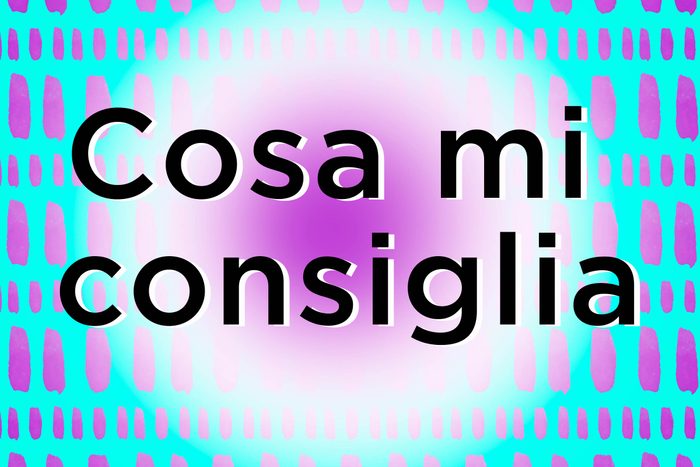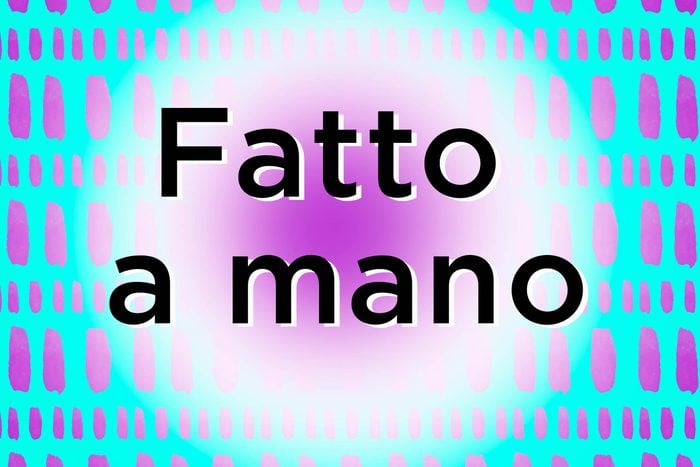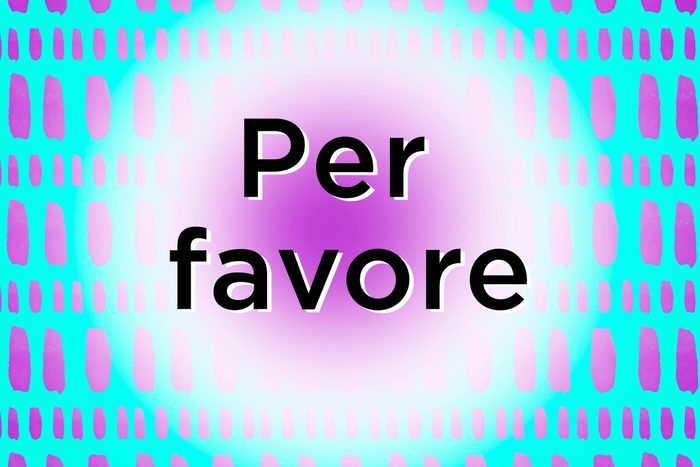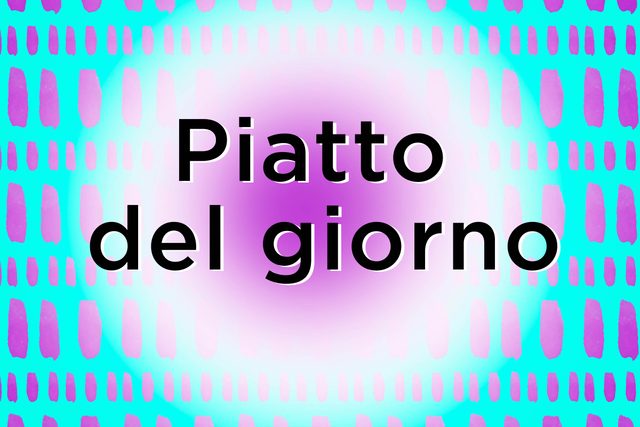
Italian phrases: Scusi/scusa (excuse me)
(SKOO-zi/SKOO-sa) Senior Instructor Chiara Torriani, from the University of Colorado, Boulder Department of French and Italian, likes to teach politeness, and being properly cultured certainly means knowing the art of politesse in Italian phrases. To say “excuse me” in a variety of contexts, the word scusi (or when addressing someone informally, scusa) is extremely helpful. It can be used to apologize for an error, to excuse yourself for having to leave early, to get someone’s attention, or to get through a crowd. Use scusi to address an older person or someone who you do not know; scusa for a peer, friend, or younger person. And if you’re going to be entering the home of an Italian, says Torriani, you should say permesso. “There is no equivalent in English,” she says, “but it is a very polite thing to say when entering someone’s home.” Examples: Scusa, I need to go now. Scusi, permesso (when navigating a crowd). Scusi, I didn’t do it on purpose. You can also check out these popular British phrases. Oh and, learn about why people say “pardon my french” when they swear.

Italian phrases: Cosa mi consiglia (what do you suggest for me)
(Ko-za mee con-SEEL-yah) This Italian phrase is particularly helpful while dining and for those who are looking to try local or specialty dishes. Torriani suggests using it at small, family restaurants where it’s obvious the server knows the food and you can trust their recommendation. Not to mention, those restaurants often have the best food! Examples: Cosa mi consiglia for a pasta dish?; Lei (meaning, the server), cosa mi consiglia?

Italian phrases: Fatto a mano (handmade)
(FAH-toe a MAH-no) Discovering unique handmade goods is an experience in itself—such as hand-blown glass from Murano, or woodcarvings in the Dolomites. These types of local handicrafts are also known as artigianato locale, she says. Bonus tip: Torriani reminds us that handmade, in Italy, doesn’t necessarily mean more expensive. Example: Is this lace fatto a mano? Remember to check out these U.S. phrases that differ by region!

Italian phrases: Per favore (please)
(Pear fah-VOR-ay) Everyone knows the Italian word for “thank you,” but “please” is equally important. You may also hear Italians saying per piacere, which is one of the Italian phrases that also means “thank you,” but Torriani’s personal preference, simply because of the way it sounds, is per favore. Example: Can you pass the bread, per favore?; Attention, per favore!

Italian phrases: Piatto del giorno (daily special)
(Pee-AH-toe del gh-YOR-no) Foodies and lovers of Italian cuisine should definitely know how to use piatto del giorno, or “daily special,” at restaurants. And, especially if you’re in a wine region of Italy, it’s worth knowing how to ask for the vino della casa—the house wine. Here, chefs weigh in with what they like to order in Italian restaurants. Example: Do you have a piatto del giorno?

Italian phrases: Aperitivo (pre-dinner drink)
(Ah-pear-ih-TEE-voe) The art of the pre-dinner drink, or aperitivo, is a Milanese tradition and the Italian version of happy hour. Condé Nast Traveler recently shared the hottest aperitivo spots, but what you need to know is that, unlike in the United States, the bars set out lavish displays of delicious free snacks. Yes, I’ll have a Negroni, per favore. Example: Join me for an aperitivo after work?

Italian phrases: Ingresso gratuito (free and open to the public)
(In-GRESS-oh grah-TOO-ee-toe) Vacationing is costly, Torriani points out, and knowing this handy phrase will save you money. “I would hate for travelers to miss a cultural opportunity because they don’t want to, or can’t, spend the money.” So keep an eye out for it for this valuable Italian phrase! Example: Do you know of any events this week that are ingresso gratuito?

Italian phrases: Vorrei (I would like)
(Vorr-AY-yah) This is one of those polite Italian phrases everyone will use frequently. You can practice every morning when you get your coffee (preferably standing up, at the bar, like most Italians). Example: Vorrei un cappuccino, per favore.

Italian phrases: In bocca al lupo (good luck)
(In BOW-ka ahl LOO-poe) Most cultures have a history of good luck phrases or charms, but in Italy you’ll often hear the idiom in bocca al lupo—literally, it means “into the mouth of the wolf,” and according to dummies.com, probably originated as a hunting expression. Example: Big interview today? In bocca al lupo! When you’re done mastering Italian, brush up on popular French phrases.

Italian phrases: Saldi (sales)
(SAHL-dee) You’ll obviously be shopping for clothing while in Italy, and since Italian designers are famous for their design, craftsmanship, and use of the finest materials, you’ll be paying for that quality. That’s why knowing when the sales, or saldi, occur—and what the word means—will help you score a deal. Torriani says that mid-to-end of summer in the cities, and after Christmas, are key seasonal periods for saldi. Examples: Is this in saldo?; When do the saldi start?

Italian phrases: Magari (maybe)
(Ma-GAHR-ee) An official English equivalent of magari—which can mean “maybe” or “I wish,” depending on context—doesn’t exist, but perhaps it should. Per the HuffPost, use this Italian phrase to express something you wish to come true, like a wistful dream, the romance of what’s possible. Example: Honeymoon on the Amalfi Coast? Magari!

Italian phrases: Quanto costa? (how much does it cost?)
(Kwon-toe COE-stah?) Ability to use the phrase quanto costa (how much?) is necessary to indulge in the Italian culture of shopping. However, in upscale boutiques—such as shoe stores—do not handle items, or pick them up. That is frowned upon. A great tip from Torriani: Use questo (“this”) or quello (“that”) if you don’t know the Italian word for the item you’re asking about. Example: Quanto costa questo/quello?
Ready to try out all your newly learned phrases? This is the best time to travel to Italy.